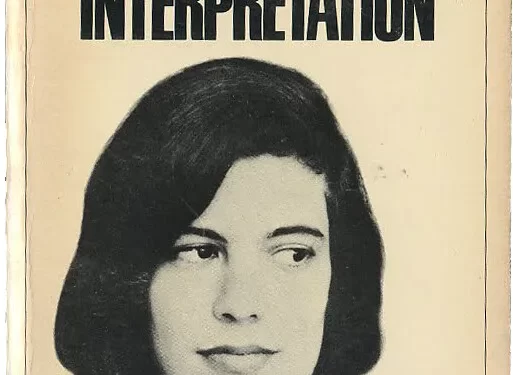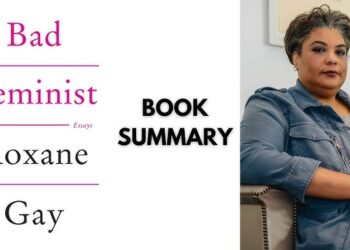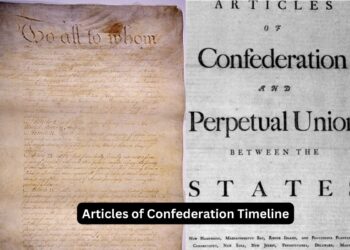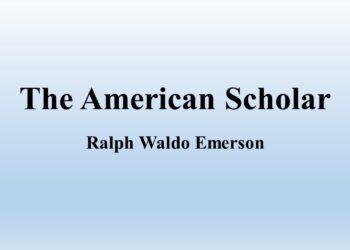Susan Sontag published a groundbreaking essay titled “Against Interpretation” in 1966. In this piece, Sontag takes issue with the current emphasis on interpretation and how it affects how we comprehend and value art. According to her, interpretation has taken the place of direct experience in art participation, leaving more room for intellectual examination.
Against Interpretation Essay By Susan Sontag-Sontag claims in her opening paragraph that interpretation has become a cultural fixation in a variety of contexts, including art, psychology, religion, and politics.
Against Interpretation Essay By Susan Sontag-She asserts that the need to interpret results from a drive to give the world meaning and to control its irrational nature. Sontag argues, however, that this ongoing need for interpretation strips art of its essential power and turns it into a simple study subject.
Also Read-
- Joe Gould’s Secret Essay Summary By Joseph Mitchell
- Letter from Birmingham Jai Essay Summary By Martin Luther King Jr.
- Goodbye to Forty-Eighth Street Essay Summary By E.B. White
- Speak, Memory Essay Summary By Vladimir Nabokov’s
Against Interpretation Essay By Susan Sontag-According to Sontag, interpretation largely focuses on figuring out the hidden meanings or symbolism in a piece of art. This approach, according to her, reduces our interaction with art to a solely intellectual activity while obscuring the sensuous and emotional elements that are essential to a full artistic experience.
According to Sontag, this emphasis on interpretation is a type of cultural conservatism that limits the expressive power of art and constricts our perception of its potential.
Against Interpretation Essay By Susan Sontag-Sontag is an advocate for a more direct interaction with art as opposed to interpretation. She advises that rather than trying to decipher hidden meanings or messages, we should approach artworks with an openness to the immediate sensory experience they bring.
The aesthetic characteristics of art, such as its beauty, form, and sensuality, should be allowed to move us, according to Sontag. She thinks we can access a deeper, more intuitive understanding of art and its power to transcend language and conceptual frameworks by refusing the impulse to interpret.
Against Interpretation Essay By Susan Sontag-Sontag also talks about the emergence of camp aesthetics in “Against Interpretation,” which she sees as a type of artistic resistance to the predominance of interpretation.
The idea that art must always be earnest and serious is questioned, in Sontag’s opinion, by camp, which embraces artifice, exaggeration, and the artificial. Through camp, artists design an environment where enjoying the visual experience right away takes primacy over uncovering hidden meanings.
Against Interpretation Essay By Susan Sontag-Overall, Sontag’s article “Against Interpretation” makes a case for reconsidering how we view art. She urges a more direct and sensual contact with artistic works and rejects the overuse of interpretation. Sontag contends that by resisting the temptation to interpret meaning, we can have a richer and more genuine experience of art, one that transcends the limitations of intellectual analysis and enjoys its sensory aspects.
About Susan Sontag
Susan Sontag (January 16, 1933 – December 28, 2004) was an American writer, cultural critic, and filmmaker. She was born in New York City and grew up in Tucson, Arizona. Sontag is widely regarded as one of the most influential and prominent intellectuals of the 20th century.
Against Interpretation Essay By Susan Sontag-Throughout her career, Sontag wrote extensively on a wide range of topics, including art, literature, politics, philosophy, and cultural criticism.
Against Interpretation Essay By Susan Sontag-Her writings often displayed a keen intellect, sharp analytical skills, and a provocative and challenging style. Sontag’s work reflected her deep engagement with various artistic and intellectual movements, and she was known for her ability to tackle complex subjects in a lucid and accessible manner.
Against Interpretation Essay By Susan Sontag-Some of Sontag’s notable works include her essay collections “Against Interpretation” (1966), “On Photography” (1977), and “Regarding the Pain of Others” (2003). In these works, she examined the relationship between art, society, and politics and explored the ways in which images shape our understanding of the world.
Against Interpretation Essay By Susan Sontag-Sontag also ventured into fiction writing with novels such as “The Benefactor” (1963) and “The Volcano Lover” (1992), which blended historical events and personal narratives. She received numerous awards and honors for her work, including the National Book Award for “In America” (2000).
Against Interpretation Essay By Susan Sontag-Beyond her writing, Sontag was actively involved in cultural and political activism. She spoke out against war, advocated for human rights, and was vocal about issues such as AIDS awareness and the Israeli-Palestinian conflict. Sontag’s perspectives and opinions often sparked controversy and debate, but she remained a highly influential figure in shaping cultural and intellectual discourse.
Against Interpretation Essay By Susan Sontag-Susan Sontag passed away on December 28, 2004, in New York City. Her writings continue to be widely read and studied, and her contributions to art criticism and cultural theory have had a lasting impact on the field.
Conclusion
Susan Sontag’s essay “Against Interpretation” presents a compelling critique of the prevailing emphasis on interpretation in art and culture. She argues that interpretation has overshadowed the direct experience of art, reducing it to a mere object of analysis and intellectual scrutiny. Sontag advocates for a more immediate and sensual engagement with art, one that embraces its aesthetic qualities and transcends the limitations of language and conceptual frameworks.
Against Interpretation Essay By Susan Sontag-By rejecting the urge to interpret and instead allowing ourselves to be moved by the beauty, form, and sensuality of art, Sontag suggests that we can access a deeper understanding and appreciation of artistic works.
She also highlights the significance of camp aesthetics as a rebellion against the dominance of interpretation, celebrating the pleasure and artifice inherent in the aesthetic experience.
“Against Interpretation” challenges us to reconsider our approach to art and to embrace a more direct, sensory, and intuitive encounter with artistic works. It encourages us to move beyond the quest for hidden meanings and messages and instead revel in the immediate pleasures and transformative power of art.
Against Interpretation Essay By Susan Sontag-Through this shift in perspective, Sontag suggests that we can unlock new dimensions of artistic understanding and open ourselves up to the full range of possibilities that art offers.
FAQ.
Q: What is the main argument of “Against Interpretation”?
A: The main argument of “Against Interpretation” is that the prevailing emphasis on interpretation in art and culture has led to a loss of direct experience and a reduction of art to mere objects of intellectual analysis. Susan Sontag argues for a more immediate and sensual engagement with art, one that embraces its aesthetic qualities and transcends the constraints of interpretation.
Q: What does Sontag propose as an alternative to interpretation?
A: Sontag proposes a more direct and sensory engagement with art as an alternative to interpretation. She suggests that we should focus on the immediate experience of art, appreciating its beauty, form, and sensuality, rather than constantly seeking to decipher hidden meanings or messages.
Q: What is Sontag’s view on the role of interpretation in art?
A: Sontag criticizes the dominant role of interpretation in art and argues that it limits our understanding and appreciation of artworks. She suggests that interpretation reduces art to intellectual analysis and overlooks the sensual and emotional aspects that are essential to a complete aesthetic experience.
Q: What is the significance of camp aesthetics in “Against Interpretation”?
A: Sontag discusses camp aesthetics as a form of artistic rebellion against the dominance of interpretation. Camp celebrates artifice, exaggeration, and the artificial, prioritizing immediate pleasure and the aesthetic experience over deciphering hidden meanings. Sontag sees camp as a way to challenge the notion that art must always be earnest and serious.
Q: How does “Against Interpretation” propose we engage with art?
A: “Against Interpretation” proposes a more direct and sensory engagement with art. Sontag suggests that we should approach artworks with openness to the immediate aesthetic experience they offer, focusing on their beauty, form, and sensuality. By resisting the urge to interpret and allowing ourselves to be moved by art’s qualities, she believes we can access a deeper, more intuitive understanding of artistic works.
















